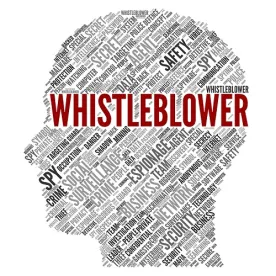In an opinion released May 26, 2015, Kellogg Brown & Roots Services, Inc. v. United States ex rel. Carter, the U.S. Supreme Court unanimously held that whistleblowers cannot extend the statute of limitations for war-related civil false claims under the Wartime Suspension of Limitations Act (“WSLA”), reinstating an already generous statute of limitations period under the civil False Claims Act (“FCA”). The Court also settled a split between the U.S. Courts of Appeals for the D.C. Circuit and the Fourth Circuit. For purposes of the FCA’s “first-to-file” bar, the FCA only limits a lawsuit based on the same underlying facts as another case that is actually open and pending when the later lawsuit is filed. In reaching these holdings, the Court relied heavily on the plain meaning of the statutory language, simultaneously handing a victory to both Defendants (on the statute of limitations issue) and Plaintiffs (on the first-to-file issue). But, the holding relating to the WSLA may prove to be the greatest legacy from the KBR decision, reigning in aggressive whistleblowers and government lawyers who would try to allege a case of “fraud” decades after the conduct occurred, and long after a Defendant is able to defend itself effectively.
Statute of Limitations and the WSLA
The qui tam complainant, Benjamin Carter, a former contractor in Iraq in early 2005, alleged that Kellogg Brown & Root Services, Inc. (“KBR”) and Halliburton Company fraudulently billed the Government for unperformed or improper water purification services. While the relator first filed hisqui tam action in 2006, his fourth and final complaint was filed in 2011. Notably, the FCA provides a six-year limitations period, with a ten-year maximum. 31 U.S.C. § 7371(b).
The WSLA, 18 U.S.C. § 3287, was originally enacted during the First and Second World Wars to extend the statute of limitations for war-related criminal fraud that the Government was unable to prosecute because of the war-time conditions. The current version of the WSLA suspends the statute of limitations for “any offense against the laws of the United States.” Concluding that this does not suspend the statute of limitations for civil fraud claims, the Court noted that the term “offense” commonly refers to crimes. Given this plain meaning, the Court concluded that the WSLA does not suspend indefinitely the statute of limitations under the civil FCA, reversing (in part) the Fourth Circuit.
First-To-File and What it Means to Be “Pending”
The Supreme Court also interpreted the FCA’s first-to-file bar, which limits a person’s ability to “bring a related action based on the facts underlying [a] pending action.” 31 U.S.C. § 3730(b)(5). Applying the ordinary meaning of the term “pending,” the Supreme Court agreed with the Fourth Circuit that the first-to-file bar applies only to cases presently open and awaiting decision. The Court held that “pending” does not have the “peculiar” use posited by the contractors – “a short-hand for the first filed action” – a result that might allow the first-to-file bar to operate in perpetuity. Rather, the first-to-file bar does not create a permanent prohibition on any subsequent related action because an action is no longer “pending” upon dismissal. Justice Alito, writing for the unanimous majority, joked that under the interpretation advanced by defendants, both the famousMarbury v. Madison and the trial of Socrates would still be “pending.” Thus, the Court explained, a later FCA action is not barred simply because an earlier, but now dismissed, FCA action based on the same underlying facts had been filed. If the prior case was still open, however, then the first-to-file bar would likely prohibit the second action.
Despite the fact that the Court applied the ordinary meaning of the term “pending,” the Court’s decision is still a bit novel, upending much of the jurisprudence on this topic. Until this decision, most of the lower courts in the United States interpreted the first-to-file provision as a bar of all later filed qui tam actions that were based on the same facts as an earlier filed lawsuit. These lower courts reasoned that the first-to-file bar should limit further qui tam litigation regarding alleged false claims once the Government has been put on notice of the potential fraud. Once the Government was on notice, there was no reason to permit relators to claim a bounty on an alleged fraud the Government was fully able to obtain for itself. It will be interesting to see how case law will evolve to address this new decision from the Court. At the very least, this creates an opportunity for parasitic “whistleblowers” and it increases the risk that companies may have to litigate serially similar allegations of misconduct.
Conclusion
While the KBR decision is a mixed bag for both defendants and plaintiffs, perhaps the best result of this decision is that it protects government contractors from exposure to never-ending claims of civil fraud stemming from wartime activities. The FCA’s statute of limitations period now firmly requires whistleblowers to bring an action within six years (with a ten-year absolute cap). On the other hand, government contractors and government contracts attorneys alike will have to take the Court’s first-to-file decision into account when considering settlements and dismissals of qui tam actions. As soon as a case is no longer pending, a related action may properly be brought—opening the door for additional opportunistic actions upon settlement or dismissal.
For Carter (the whistleblower in the KBR case), the case may offer limited hope. While his claims may not necessarily be barred under the first-to-file rule, the question remains as to whether a firm statute of limitations will otherwise bar his claims. In the end, it seems likely that KBR will come out on top of this “mixed bag” of a decision.


 />i
/>i

